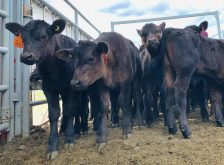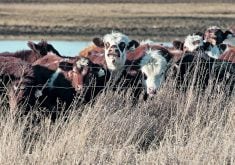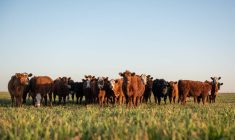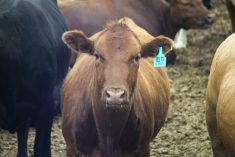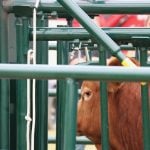COVID. Drought. Border blockades. A feed crisis. Packing plant closures.
As the man at the helm of Canada’s top cattle organization, Bob Lowe has had more fires to put out than any Canadian Cattlemen’s Association president in recent memory.
And now that he’s finished his term as president, the Nanton-area rancher and feedlot operator is looking forward to a little bit of a break from it all.
“It feels pretty darn good not to have to worry about it every day,” Lowe said with a laugh.
Read Also
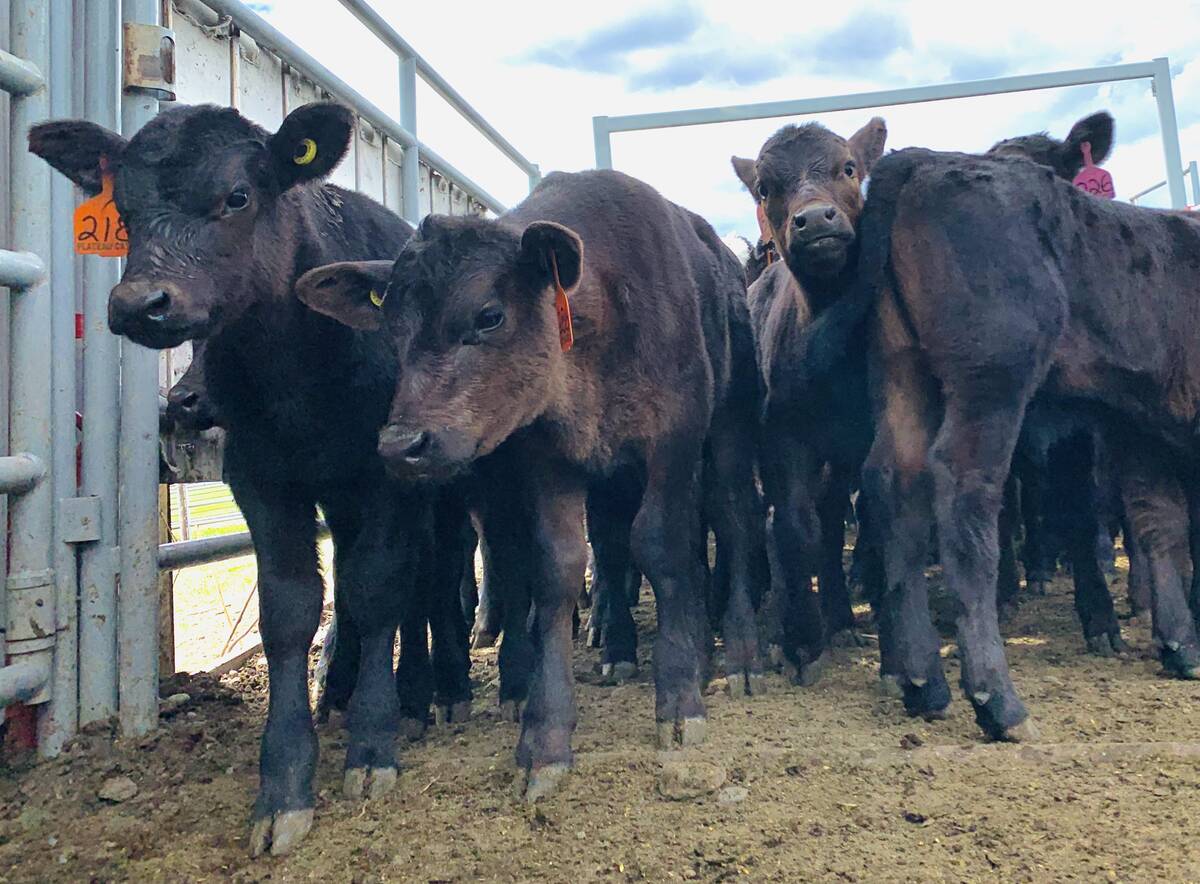
How ‘care and compassion’ protocols drive performance at this Alberta ranch
Plateau Cattle Company says lowering stress in calves using science-based practices leads to higher weaning weights and better animal health.
“There are issues all the time, but this just seemed to jump from one fire to another. CCA is pretty good at putting out fires before they ever start, but this was a little beyond our control.
“Instead of being proactive, a whole lot of this past two years was reactive — which is a whole lot more stressful.”
Lowe was elected CCA president just as the pandemic arrived in the spring of 2020. At the time, with cattle numbers down and a “huge demand” for beef, Canadian cattle producers were feeling optimistic.
“It should have been two really good years. The stars were all lining up, and then the pandemic hit, followed by the drought,” said Lowe.
“If you had asked me two years ago what would be the issues and opportunities facing the industry, my answer would have been totally different from what happened.”
When the pandemic first hit, the CCA’s No. 1 focus was to keep the supply chains across the U.S. border open to ensure trade could continue with Canada’s largest beef customer (and competitor).
“We need that trade. Trade is essential for everything,” he said. “We’ve heard a lot during the pandemic that we have to be more reliant on locally grown foods, but that all comes at a cost. If you want watermelons in Winnipeg in January, it’s probably cheaper to go get them from somewhere else.”
Supply chains were further threatened this February by an illegal border blockade at Coutts, one of the busiest border crossings for people, livestock and goods between the two countries.
“We worked like hell to keep the borders open all through COVID, and then to have borders shut down — that affected agriculture badly,” said Lowe. “Because of the drought, we’re relying on feed coming up from the U.S., and our cattle industry relies on some of the U.S. processing plants to be our third market for fat cattle. So if we can’t get the feed up or the cattle down, we’re in trouble.”
Perhaps the biggest frustration for Lowe, though, was the nature of the crisis at the border.
“It seemed a little silly to me that it was actually man made,” he said. “We went through the pandemic, which was no fault of anybody. We went through a drought, which was no fault of anybody.
“And then humans shut the border down, a lot of it against their own industry. It just doesn’t make any sense to me.”
Silver linings
What the pandemic (and subsequent blockade) really did, he said, was show the weakness in the supply chains — and that provided the entire agriculture sector with an unexpected “silver lining.”
“When I first took over the presidency of the CCA, one of my goals was to get food and food production in agriculture onto people’s minds,” said Lowe. “Now, I didn’t really want a pandemic to do it, but nevertheless, the role of agriculture has been really moved up the ladder as far as consumers are concerned.
“People are now thinking about their food and where it comes from, which is a really good thing.”
There are other bright spots in Canada’s cattle industry right now despite a tough couple of years, said Lowe. Last May, Canada received negligible-risk status for bovine spongiform encephalopathy (BSE) from the World Organization for Animal Health.
“That’s been 18 years that we’ve been working at that, and we’ve got it finally, which puts us on a level playing field with our biggest customer and competitor, the U.S.,” said Lowe. “It’s the best rating you can get, so that’s a huge win for the industry.”
Beyond that, demand for Canadian beef continues to be strong globally.
“We’re producing a socially acceptable, environmentally sustainable, and financially viable protein, and the demand is showing that,” he said. “In both dollar value and tonnage, we’ve set a record on beef exports every year for six years. That just means people want it.”
That profitability will start to spread throughout the industry, he predicted.
“That’s just a matter of supply and demand, and as long as we can keep the demand where it is or better, I think it’s going to be a great industry to be part of.”
And it seems he’s not the only one. Lowe has started to see a shift toward more optimism in the industry at recent in-person meetings and events.
“A negative attitude among producers will do as much to cripple the industry as anything else, but right now, you can’t blame people,” he said. “Every time we think things are turning around, we get hit with something else. But I think a year of good profits for the industry will make things a whole lot better.”
Despite the challenges of the last two years, Lowe credits this emerging optimism to the Canadian Cattlemen’s Association, where he will be serving a two-year term as past president.
“It’s been a learning couple of years, and I do believe that the CCA staff and board have proven that the organization has to be here. We would have been in a lot worse place without the CCA to lead us through this jumble.”



